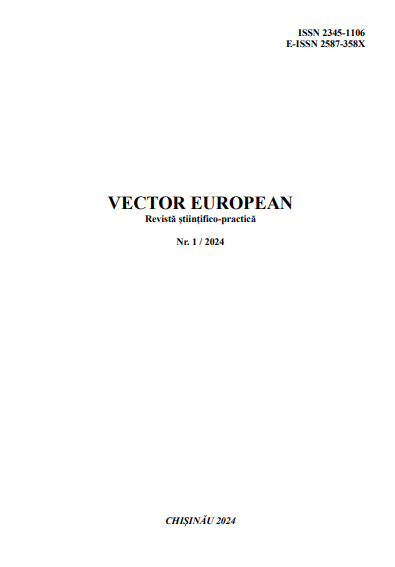ASPECTE METODOLOGICE ALE DIAGNOSTICĂRII INTELIGENŢEI LINGVISTICE LA ELEVII DE VÂRSTĂ ȘCOLARĂ MICĂ
METHODOLOGICAL ASPECTS OF DIAGNOSING THE LINGUISTIC INTELLIGENCE IN EARLY SCHOOL-AGE STUDENTS
Author(s): Valentina Botnari, Cătălina RusuSubject(s): Phonetics / Phonology, Syntax, Semantics, Language acquisition, School education, Sociology of Education, Pedagogy
Published by: Universitatea de Studii Europene din Moldova
Keywords: English language; competence; linguistic intelligence; young students;
Summary/Abstract: This article highlights the essence and importance of the possession of linguistic intelligence by students of young school age as a valuable acquisition in learning English language. In this sense, a tool is proposed to diagnose the level of linguistic intelligence purchased by students of young school age, namely a test that contains items related to the four aspects of linguistic intelligence: phonology, semantics, syntax and praxis. The results of the application of the respective test are provided by statistical processing methods such as: the Statistical Package for the Social Sciences (SPSS) program, Cronbach's Alpha Coefficient, frequency analysis, cross-frequency analysis, T-test for paired samples, Pearson Correlation. The article also includes estimates of the value of the findings, including the areas of their exploitation.
Journal: Vector European
- Issue Year: 2024
- Issue No: 01
- Page Range: 170-173
- Page Count: 4
- Language: Romanian

